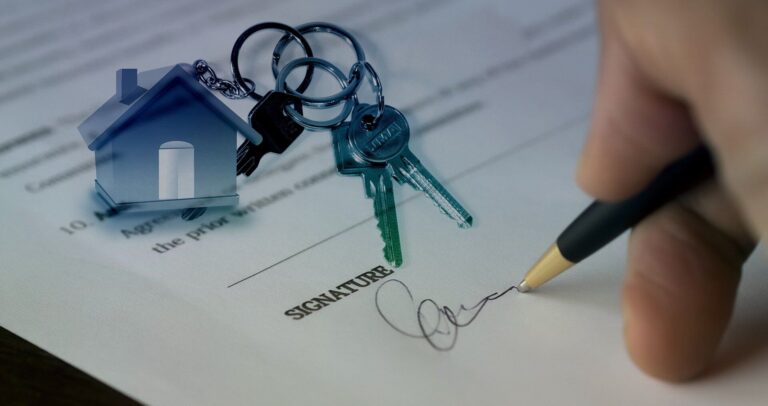So you’ve found your dream home, made an offer, and it’s been accepted! Congratulations! But what happens next? For many first-time homebuyers, the period after an offer is accepted can feel overwhelming, as there are numerous steps and tasks that need to be completed before the sale is finalized. Understanding these steps and being prepared can help make the process smoother and less stressful.
In this blog, we’ll break down what happens after your offer is accepted and explain the key steps involved in finalizing your home purchase.
1. Earnest Money Deposit
After your offer is accepted, you’ll typically be required to submit an earnest money deposit. This deposit shows the seller that you’re serious about purchasing the property and is usually around 1% to 3% of the home’s purchase price. For example, on a $300,000 home, your earnest money deposit could be between $3,000 and $9,000.
This deposit is placed in an escrow account and will go toward your down payment or closing costs if the sale goes through. If you back out of the deal without a valid reason, the seller may keep the earnest money as compensation for taking the home off the market.
2. Home Inspection
Once your offer is accepted, it’s time to schedule a home inspection. The home inspection is one of the most important steps in the buying process. It helps you identify any potential issues with the property before finalizing the purchase. This includes checking the foundation, plumbing, electrical systems, and roof condition, among other things.
The home inspector will provide you with a detailed report of their findings. If major issues are uncovered, you can negotiate with the seller to fix them or request a reduction in the price. Sometimes, you may even decide to walk away from the deal if the issues are too severe.
The cost of a home inspection typically ranges from $300 to $500, depending on the size of the home and the location. If you’re using online real estate agents, they can often recommend trusted inspectors in your area.
3. Appraisal
If you’re financing your home purchase with a mortgage, the lender will require an appraisal. An appraisal is an independent assessment of the home’s value, and it ensures that the property is worth the price you’re paying for it. This step protects the lender in case you default on the loan.
The cost of an appraisal typically ranges from $300 to $700, and the appraisal is usually scheduled after the home inspection. If the appraisal comes in lower than the agreed purchase price, you may need to renegotiate with the seller or make a larger down payment to cover the difference.
4. Finalizing Your Mortgage
After the inspection and appraisal are complete, the next step is to finalize your mortgage loan. Your lender will need to review the details of the property, your financial situation, and any inspections or appraisals that were conducted.
At this stage, you may be asked to provide additional documentation, such as bank statements, tax returns, or pay stubs. This is to ensure that everything is in order before closing. Once everything is reviewed and approved, your lender will issue a formal loan commitment, which confirms that they are ready to fund your mortgage.
5. Title Search and Title Insurance
Before you can close on the home, a title search will be conducted to ensure that the property is free of legal issues. This search checks for any liens, unpaid property taxes, or claims that could affect your ownership rights. If any issues are found, they’ll need to be resolved before closing.
Title insurance is also required by most lenders. This insurance protects both you and the lender in case any issues arise regarding the ownership of the property. It covers the cost of resolving any disputes over ownership or undiscovered liens.
Title insurance can cost anywhere from $300 to $1,000, depending on the price of the home.
6. Closing Disclosure and Final Walk-Through
Before closing day, your lender will provide a closing disclosure, which is a document that outlines all the costs associated with the purchase, including your loan details, closing costs, and the final amount you need to pay. You’ll typically receive this disclosure at least three days before the closing date, giving you time to review the document and ensure there are no errors.
The final walk-through usually happens a day or two before closing. This is your opportunity to inspect the home one last time to ensure it’s in the agreed-upon condition. You’ll want to check that any repairs or changes requested after the inspection have been made and that no damage has occurred since your previous visit.
7. Closing Day
The closing day is when the final paperwork is signed, and ownership of the property officially changes hands. This is often a lengthy process that involves several documents, including the mortgage agreement, the deed, and closing disclosures.
You’ll also need to bring a cashier’s check or wire transfer for your down payment and closing costs. The seller will sign over the deed to the property, and the title company will record the transaction with the local government.
Once the paperwork is complete and the funds are transferred, the house is officially yours!
8. Post-Closing Tasks
After closing, there are a few more steps to consider. You’ll need to transfer utilities into your name, update your address with the postal service, and get familiar with your new home. Additionally, if you’ve bought a home through online real estate agents or online real estate sales, the digital records and communication you’ve received will likely help streamline your post-closing tasks.
It’s also important to file for any potential property tax exemptions you may qualify for, such as homestead exemptions. Your real estate agent in USA can help you understand local property tax benefits.
Conclusion
Once your offer is accepted, the process doesn’t stop there. The steps that follow—home inspection, appraisal, finalizing your mortgage, and closing—are all essential to making sure that your home purchase goes smoothly. By staying informed and prepared, you can navigate the home-buying process with confidence and avoid unnecessary stress.
Remember, working with a trusted real estate agent online or online realtor USA can help guide you through the entire process, from offer to closing. They can assist you with negotiations, paperwork, and finding solutions if unexpected issues arise.
“The journey from offer to ownership is one of many steps, but with each step, you’re not just buying a house; you’re creating a home.”
Q&A Section
Q: Can I back out of the deal if I find something wrong during the inspection?
A: Yes, if the inspection uncovers serious issues, you can either negotiate with the seller to fix them or request a price reduction. If an agreement isn’t reached, you may be able to walk away from the deal, depending on the terms of your contract.
Q: How long does the closing process usually take?
A: The closing process typically takes between 30 and 60 days after your offer is accepted. However, this timeline can vary depending on factors like the lender, the complexity of the transaction, and the negotiations involved.
Q: What if the appraisal comes in lower than the purchase price?
A: If the appraisal comes in lower than the purchase price, you may need to renegotiate with the seller or increase your down payment to cover the difference. Your lender may also require you to lower the loan amount.
How We Can Help You Transform Your Home — and Your Life
Imagine a living space that truly feels like your sanctuary — organized, beautifully decorated, and perfectly suited to your style.
Our Home Transformation Bundle is packed with expert tips for decluttering, organizing, and decorating your home. Whether you’re aiming for a modern, traditional, or mid-century look, these insights are designed to help you create a space that inspires calm, creativity, and joy.
But sometimes, no matter how much you declutter or redecorate, a fresh start is the real answer.
If you’re feeling like it’s time for a bigger change — a new home — we’re here for that too.
Moving forward is easier with the right partner.
The numbers speak for themselves: 87% of home buyers and 89% of sellers trust real estate agents to guide them.
Agents help you price, negotiate, organize paperwork, and avoid costly mistakes. With a true professional by your side, you’ll feel confident every step of the way.
Ready for your next chapter?
Fill out our quick form today, and we’ll personally match you with a trusted real estate agent who understands your needs — and is ready to help you achieve your goals.
It’s fast, simple, and designed to make your transformation journey smooth and exciting.
Your dream space is waiting. Let’s make it a reality — starting today.












